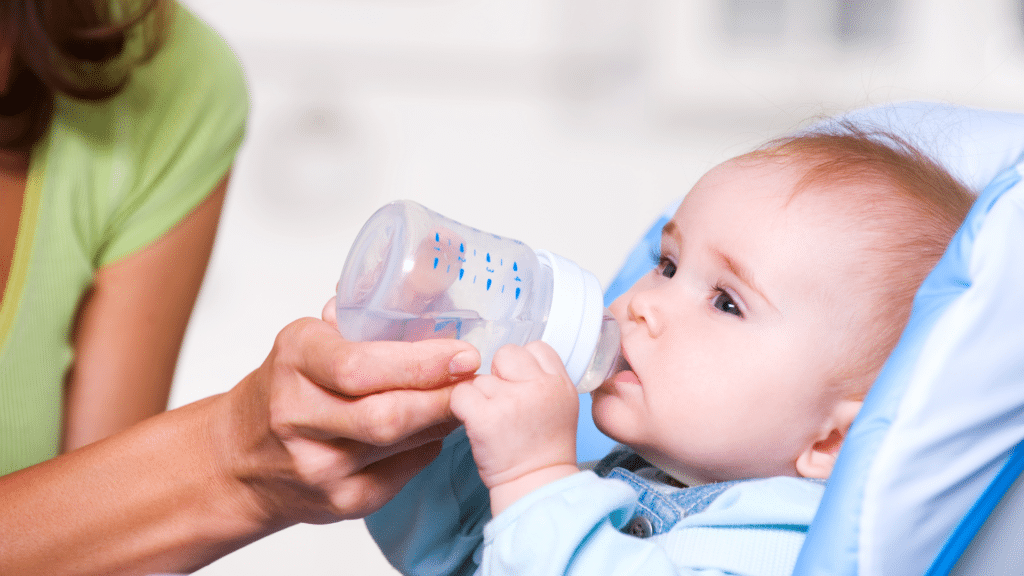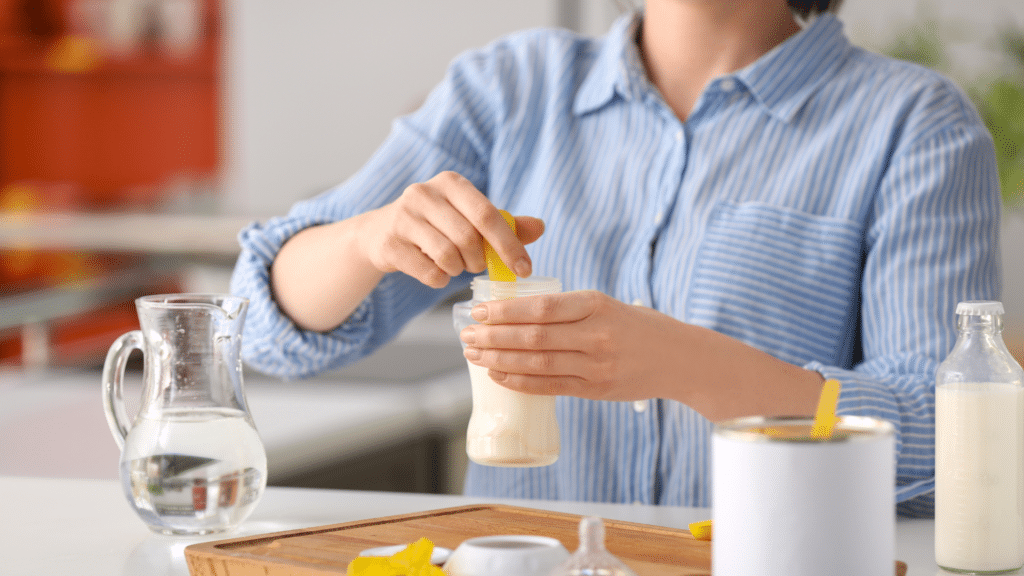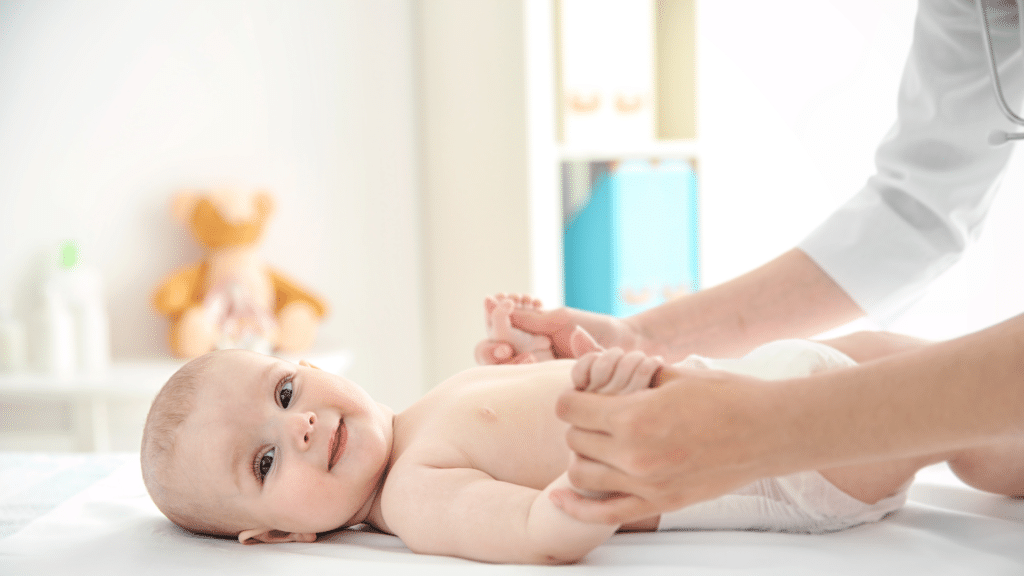As parents, our foremost concern is the safety and well-being of our children. From choosing the right nutrition to maintaining a hygienic environment, every decision we make significantly impacts their health. So, how do you find out the truth about purified water?
A common query is the kind of water we should offer our precious little ones. In this article, we will uncover the facts about purified water and examine its suitability for babies.

What is Purified Water?
Purified water has undergone a process to remove impurities, contaminants, and dissolved solids to achieve a high purity level. The purification methods used to produce purified water include reverse osmosis, distillation, deionization, ultrafiltration, and other advanced filtration techniques. These processes aim to remove chemicals, microorganisms, and other impurities that may be present in the water source. Thus, resulting in water that meets stringent quality standards for purity and safety.
Differentiating Purified Water From Other Types of Water
When it comes to different types of water, it’s important to understand the distinctions between them. Here’s a breakdown of various water types and how purified water differs from them:
- Tap Water: Tap water is the water that comes directly from the faucets in homes and businesses. It is typically sourced from groundwater or surface water. It goes through a treatment process at a local water treatment facility to remove contaminants. Even more, it also ensures that it is safe for human consumption. However, tap water may still contain trace amounts of minerals, chemicals, and other impurities. These factors may depend on the treatment process and local regulations.
- Bottled Water: Bottled water is packaged and sold for consumption. It can come from various sources, including springs, wells, or municipal water supplies. Bottled water may undergo additional treatment processes, such as filtration or ozonation, to improve its taste and quality. However, not all bottled water is purified. That’s because it may still contain some impurities, depending on the source and treatment methods used.
- Spring Water: Spring water is from a natural spring, where water flows to the surface from an underground aquifer. Spring water typically contains minerals and is considered to have a fresh, clean taste. While spring water must meet specific quality standards, it is not necessarily purified water. It is because it may still contain trace amounts of impurities.
- Distilled Water: Distilled water is a type of purified water that is produced through the process of distillation. This process involves heating water to create steam, which is then cooled and condensed into liquid form. Thus, leaving impurities and dissolved solids behind. Distilled water is considered very pure, as most contaminants are removed during the distillation process.
Hydration Needs of Babies
Proper hydration is crucial for everyone, including babies. Adequate water intake helps maintain body temperature, digestion, absorption of nutrients, and waste elimination. It is essential for babies’ overall growth and development. That’s because their bodies are composed of a higher percentage of water than adults. Dehydration in babies can lead to serious health issues, such as constipation, urinary tract infections, and electrolyte imbalances.
Choosing the right water for baby formula is essential to ensuring proper hydration for your baby. Pediatricians and healthcare professionals recommend using water that is free of contaminants and has low fluoride levels for baby formula preparation. Low fluoride bottled water can be a suitable choice, as excessive fluoride intake during infancy may cause dental fluorosis, a condition affecting tooth enamel appearance.

Recommended Water Intake for Different Age Groups
Here are the recommended water intake guidelines for different age groups:
- 0-6 months: Breast milk or baby formula should be the primary source of hydration for infants in this age group. Generally, there is no need to provide additional water, as breast milk and formula contain sufficient water to meet their needs. However, a few drops of water may be given after consulting a pediatrician in hot weather or if the baby has a fever.
- 6-12 months: As babies consume solid foods, their water needs increase. It is recommended to provide 4-8 ounces (120-240 ml) of water daily in addition to breast milk or formula. Begin with small sips and gradually increase the quantity as they get used to drinking water.
- 1-3 years: Toddlers in this age group should consume around 32-40 ounces (950-1180 ml) of fluids per day, including water, milk, and other beverages. Aim for at least 16 ounces (480 ml) of water daily, and adjust according to their activity levels and weather conditions.
Always consult with a pediatrician to determine the appropriate water intake for your baby, as individual needs may vary.
The Role of Water in Maintaining Overall Health and Development of Babies
Water plays a vital role in the health and development of babies. Some of its key functions include:
- Temperature regulation: Water helps maintain a stable body temperature, particularly in hot weather or fever.
- Digestion and absorption: Water aids in the digestion of food and absorption of nutrients, ensuring that babies receive the essential elements required for growth and development.
- Waste elimination: Adequate water intake helps properly function the kidneys, preventing constipation and urinary tract infections.
- Cellular function: Water is essential for cellular processes, including transporting oxygen and nutrients to cells and removing waste products.
- Brain development: Proper hydration is crucial for brain development, as it helps balance electrolytes and supports cognitive functions.
Parents can ensure their overall health and well-being throughout their early years by providing babies with the appropriate amount of water.

Is Purified Water Safe for Babies?
Purified water is generally considered safe for babies, as it undergoes a thorough filtration process to remove impurities, contaminants, and bacteria. However, it’s essential to consult with a pediatrician before giving purified water to infants, especially those under six months of age, as their specific needs and sensitivities may vary.
Potential Contaminants in Tap Water and Their Impact on Infants
Tap water can sometimes contain contaminants like lead, chlorine, and bacteria, which can harm baby’s health. Babies have developing immune systems and are more susceptible to the harmful effects of these contaminants. Therefore, using purified water for baby consumption and hygiene can help reduce the risk of exposure to harmful substances.
When you mix formula for your baby, it’s vital to use water free from these contaminants to ensure their safety and well-being.
Benefits of Using Purified Water for Baby’s Consumption and Hygiene
Using purified water for babies offers several benefits, including:
- Reduced risk of exposure to contaminants: Purified water goes through a rigorous filtration process, which significantly lowers the presence of harmful substances that may be found in tap water.
- Improved taste: Purified water often tastes better than tap water, making it more palatable for infants.
- Enhanced hygiene: Using purified water for cleaning and bathing can help maintain a hygienic environment for your baby, lowering the risk of infections and skin irritations.
When preparing baby formula, it’s crucial to ensure the water is free from contaminants to protect your baby’s health.

Alternatives to Purified Water for Baby’s Hydration
When choosing bottled water for your baby, selecting one that is low in sodium and free from harmful contaminants is essential. Look for water labeled as “baby water” or “nursery water, ” specifically formulated for infants. Alternatively, you can use low-mineral bottled water, which is also suitable for babies. Always check the label to ensure the water meets the recommended guidelines for infants.
If you prefer a DIY approach to providing purified water for your baby, consider using a home water filtration system. These systems can remove impurities and contaminants, making the water safe for your baby to consume. Some popular options include activated carbon filters, reverse osmosis systems, and UV water purifiers. Be sure to follow the manufacturer’s maintenance and filter replacement guidelines to ensure the water remains safe for your baby.
Precautions and Best Practices
Here are the essential precautions parents should consider when handling and storing purified water for their babies.
- Use sterilized containers: Always use clean containers to store purified water for babies. This helps eliminate bacteria and other harmful substances that may contaminate the water.
- Store in a cool, dark place: Keep the water in a cool, dark place away from direct sunlight to prevent the growth of algae and bacteria.
- Tightly seal the container: Make sure the container is properly sealed to avoid contamination from external sources.
- Label the container: Label the container with the date and time the water was purified to keep track of its freshness.
- Replace the water regularly: Replace the stored water every 24 hours to ensure it remains fresh and safe for consumption.
By following these precautions and best practices, you can safely handle and store purified water for your baby’s formula. Remember to mix infant formula thoroughly and follow the manufacturer’s instructions when preparing the prepared formula. This will ensure your baby receives the proper nutrition and hydration for healthy growth and development.

Introducing Safe Feeding Practices and Hygiene Guidelines
Here is the importance of safe feeding practices and hygiene guidelines for babies, offering valuable tips and insights to help you navigate this crucial aspect of their care.
- Wash your hands: Always wash your hands thoroughly with soap and water before preparing bottles and feeding your baby.
- Clean bottles and nipples: Sterilize bottles, nipples, and other feeding equipment before each use to eliminate harmful bacteria.
- Follow instructions to prepare infant formula: If using a formula, follow the manufacturer’s instructions carefully to ensure proper mixing and feeding. Use the correct water-to-formula ratio and safely prepare baby formula at the right formula temperature.
- Avoid propping bottles: Never prop a bottle up to feed your baby, as it can lead to choking and ear infections.
- Burp your baby: Gently pat or rub your baby’s back after feeding to help release any air bubbles that may cause discomfort.
The Importance of Testing Water Quality for Baby’s Safety
Given the potential for contaminants in both tap and bottled water, testing water quality is a crucial step towards ensuring your baby’s safety. Regularly monitoring the quality of the water you provide your little one can help you identify any issues and address them promptly.
Here are some steps you can take to ensure the water you use is safe for your baby:
- Test your tap water: If you use tap water for drinking or preparing infant formula, it’s essential to test it for contaminants. Water testing kits are readily available for purchase and can measure common contaminants such as lead, chlorine, nitrates, and bacteria. If any contaminants exceed the recommended levels, you may need a water filtration system or opt for bottled water.
- Research bottled water sources: When choosing bottled water for your baby, select a trusted brand and conduct some research on their water source and treatment methods. This information can help you determine if the water has been adequately filtered and purified to meet safety standards for infants.
- Check the expiration date: Bottled water can have an expiration date, indicating how long it remains fresh and safe for consumption. Always check the expiration date on the bottle and avoid using water past its expiration date.
- Monitor for changes in taste or odor: Any change in the taste or smell of the water you provide your baby can indicate contamination. If you notice an unusual taste or smell, stop using the water and investigate the cause to ensure it is safe for your baby.
- Consult a pediatrician: If you are unsure of the water quality in your area, consult your baby’s healthcare provider for guidance on the best water source for them.
By staying vigilant and taking necessary precautions, you can protect your baby from potential harm caused by contaminated water. Regular testing and monitoring of water quality are crucial steps towards ensuring the health and well-being of your precious little one.

Conclusion
In conclusion, our babies’ safety is paramount, and understanding purified water is vital for informed decisions. Purified water, which undergoes filtration to remove impurities, is generally safe for babies.
However, please consult a healthcare professional before introducing it to infants, especially those under six months, as their needs may vary.
Tap water can contain contaminants posing risks to infants, while purified water offers benefits like improved taste and hygiene. When selecting purified water, consider quality standards, certifications, source evaluation, filtration processes, and packaging.
Breast milk or formula should be the primary hydration source for infants under six months. As they transition to solid foods, they introduce water gradually. From 12 months onwards, encourage regular water intake.
Follow safe feeding practices and hygiene guidelines, like washing hands, sterilizing bottles, and burping the baby after feeding. Consult a pediatrician to determine the appropriate water intake and feeding practices for your little one, ensuring their safety and well-being.
Did this article help you? If you have any questions about the information in it, please feel free to ask them in the comments below.



